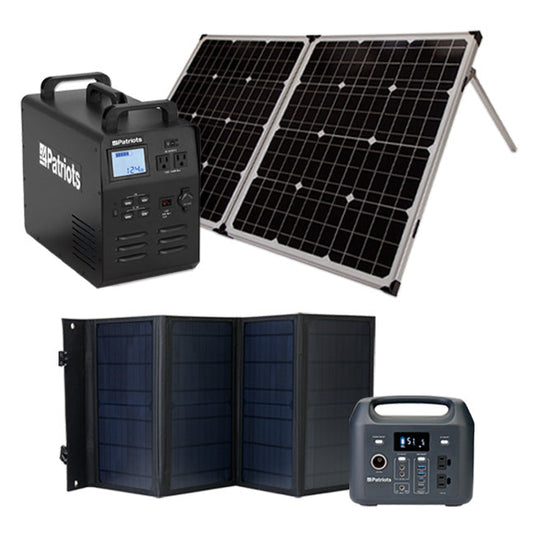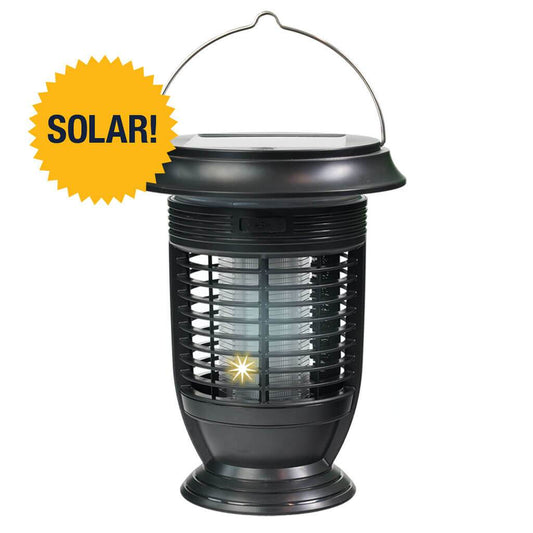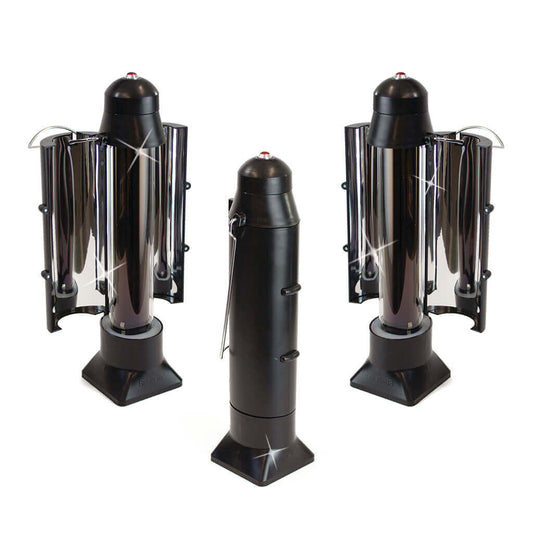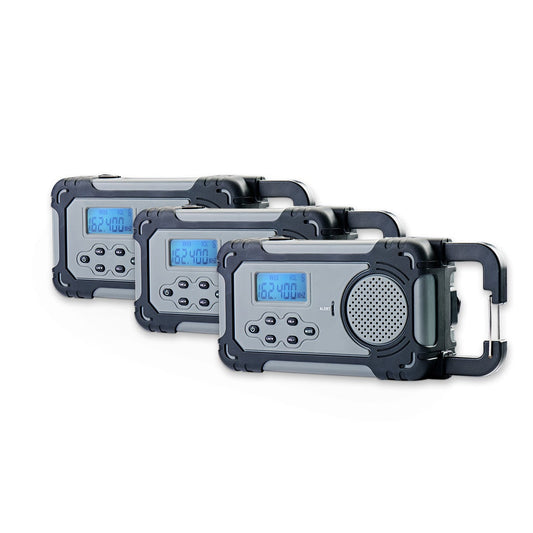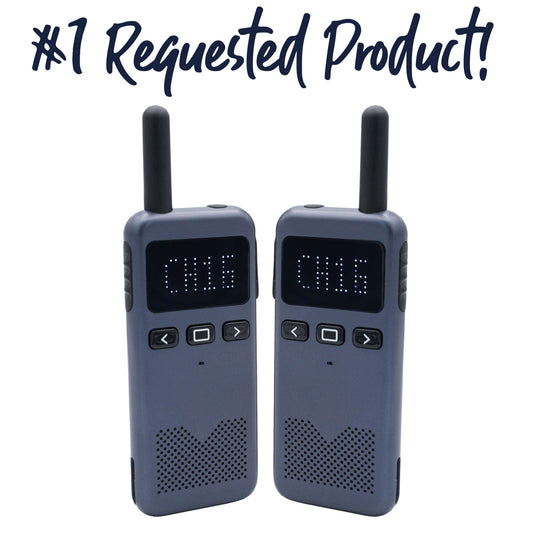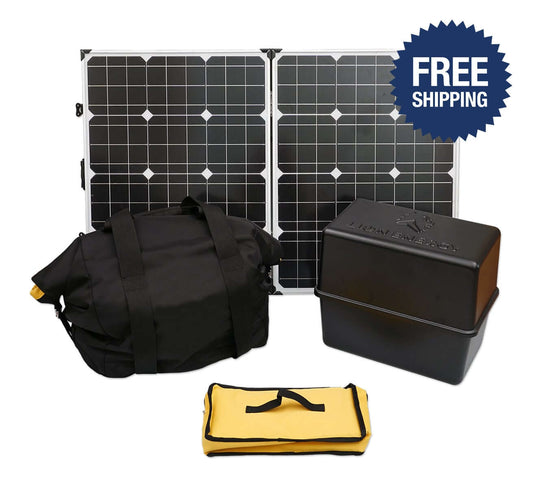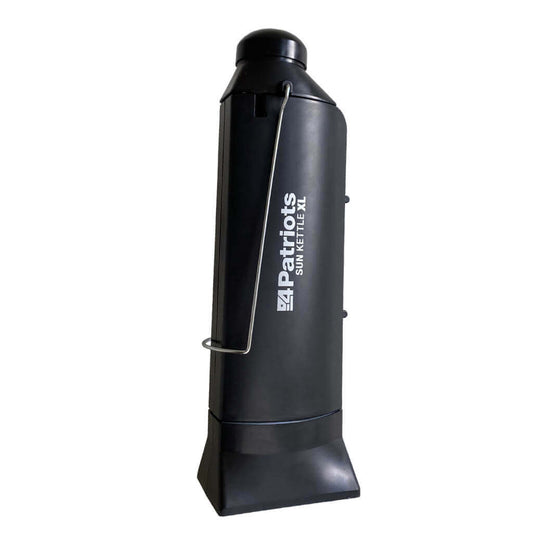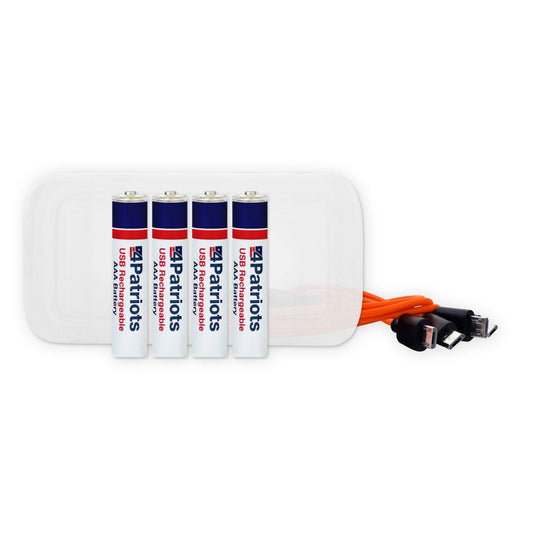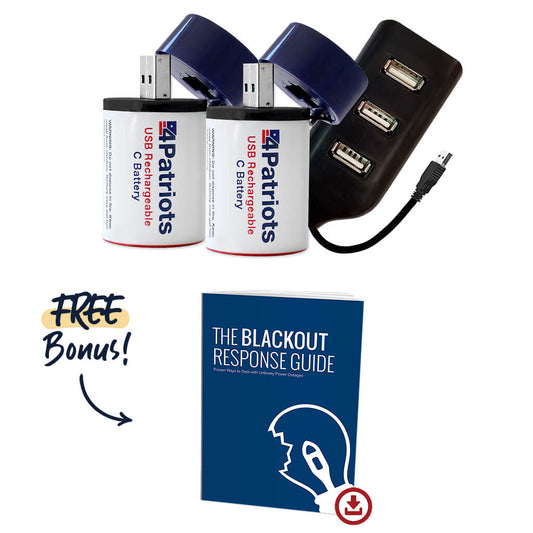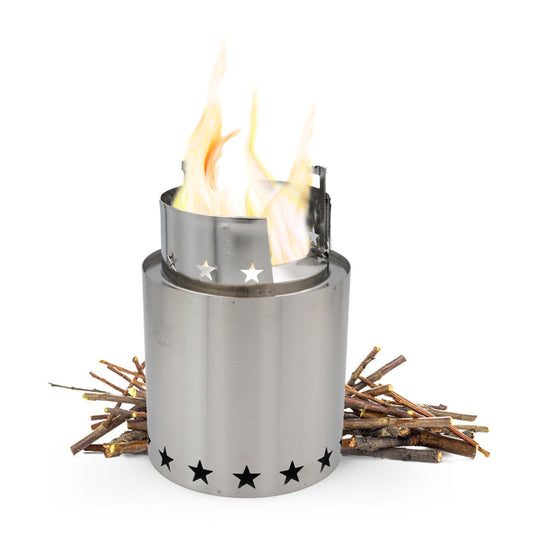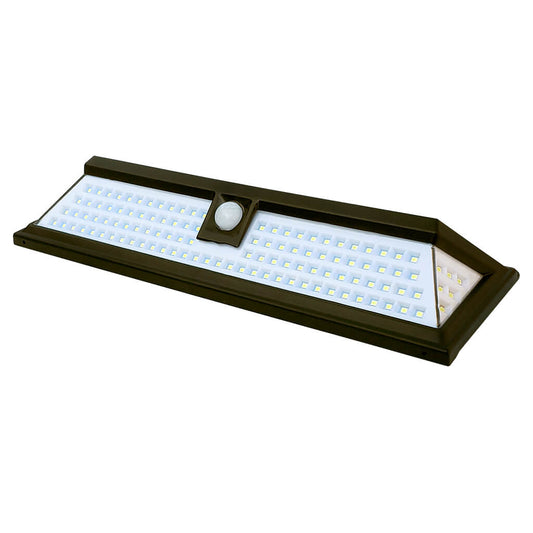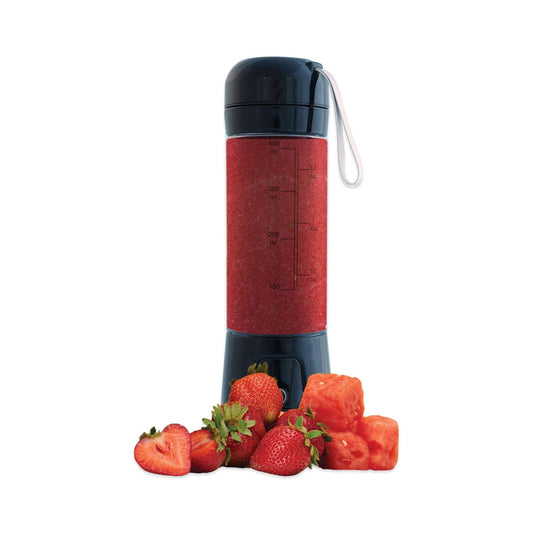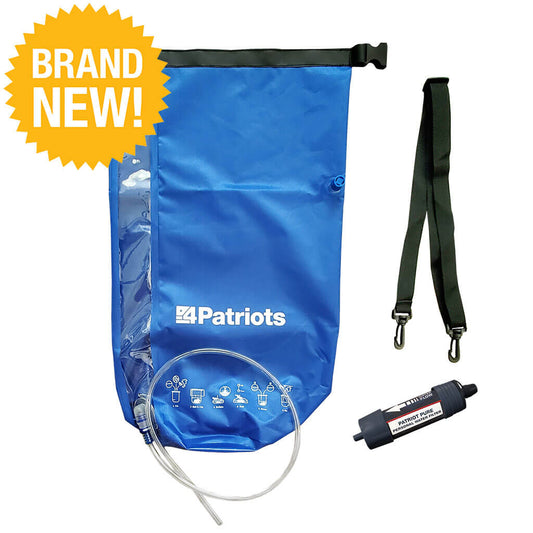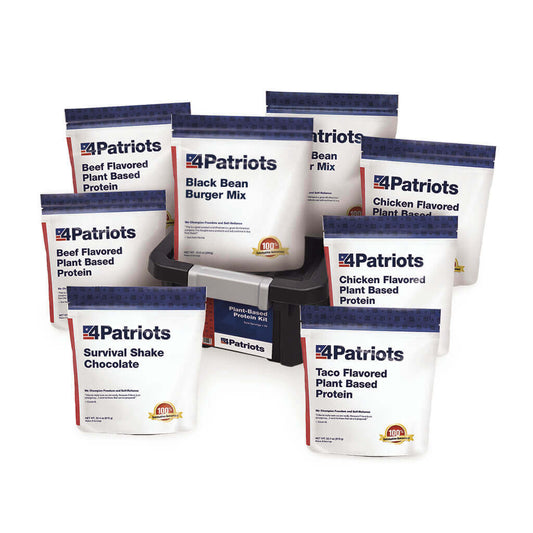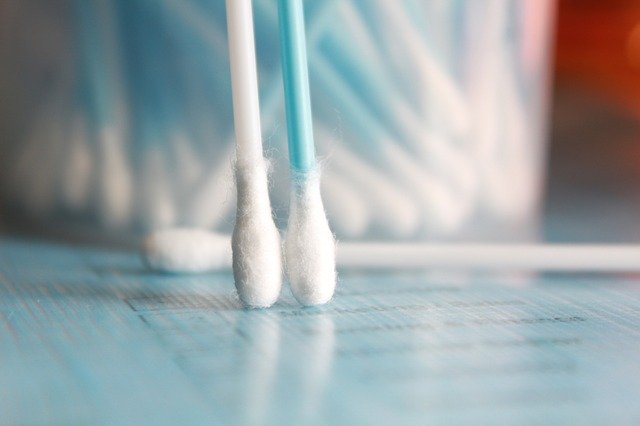
Here's How the U.S. Military Is Responding to COVID-19

We've heard a lot from healthcare officials since the pandemic broke out. And we've heard plenty about it from politicians.
Many of us have not heard as much about how the U.S. military has gotten involved in the situation.
But the military has been on top of the issue. Since well before the first confirmed cases were reported in America.
In fact, the U.S. military response actually began in the Indo-Pacific region.
First Priority – Protect Military Personnel
There are approximately 375,000 civilian and uniformed personnel stationed in that region.
Those individuals were the military's first priority when the virus began spreading in China. The focus was on providing protection for service members and their families.
Part of that protection included the cancellation of military exercises. Plus training and boot camp. As well as Reserve and Guard unit activities.
The military also provided mental health resources for those with stress caused by the virus.
Virus Doesn't Spare Armed Forces
As with everywhere else in the world, this pandemic has spread quickly in the military. Despite many precautions that were taken.
As of last week, there are 10,462 confirmed cases within the Department of Defense (DoD). That includes 7,029 military personnel and 1,170 family dependents. Plus 1,576 civilians and 687 DoD contractors.
Additionally, 5,896 individuals have recovered. Thirty-six have died, including three troops and 19 civilians.
Among the four major branches, the U.S. Navy has had the most cases (2,546). Followed by the Army (1,815), Marine Corps (589) and Air Force (571).
National Guard Pitches In
The National Guard has also gotten involved with the response. Their efforts have mainly been connected to food banks and testing areas. As well as nursing homes and personal protective equipment.
Joseph Lengyel is a National Guard bureau general. He believes the local nature of National Guardsmen is an asset.
"What makes us particularly effective in relation to the COVID-19 response is the unique, very deep connections with our communities and our homelands," he said.
"We know the people, the emergency response mechanisms and the geography in which we operate."
Second Wave Coming?
There has been speculation that a second wave may hit here in late summer or fall.
If so, the military response might look different than it has so far. That's according to Defense Secretary Mark Esper.
He said the Pentagon is looking at a variety of options. Including more targeted aid for cities and states. And shorter quarantine times for troops.
Another change could be deploying medical staff to help hard-hit communities. Rather than providing hospital ships and Army field hospitals.
Antibody Tests on Recovered Service Members
The military is currently conducting antibody tests on service members who recovered from COVID-19.
That's to determine if their plasma can be used in others to prevent or treat the symptoms.
Nasal swabs are used to diagnose active infections. But antibody tests look for blood proteins called antibodies. They are produced by the body days or weeks after fighting an infection.
Still unknown is what antibody level is needed for immunity. Or how long that immunity might last. Also unknown is whether people with antibodies can still spread the virus.
Housing Issues Weigh Heavily
The virus is also causing housing problems for many military personnel. As states reopen, they follow instructions to relocate.
But travel restrictions that began in March were extended to the end of June. Tens of thousands of military personnel are now getting double billed for housing.
Kathy Roth-Douquet is the CEO of BlueStar Families. The group provides programs and resources for 1.5 million military family members.
"We're seeing a lot of people have lost earnest funds because they put their's down on a house," she said. "Or they're going to be paying two rents or two mortgages within 60 days."
Two Mortgages Add to Challenges
An example is Andrea Bortner and her two young children. They live in family housing at Fort Riley, Kansas.
Andrea's husband, Jerry, is a U.S. Army captain. He was given instructions to move to Fort Belvoir in northern Virginia. But they haven't been able to move there. In the meantime, he was sent to Korea.
"We put thousands into the house already," Andrea said. "We got this house based on what he would be getting paid in northern Virginia."
The same thing is happening with military families in other branches. Fortunately, some service relief groups are giving financial help.
Military Will Distribute Vaccine
Some healthcare experts predict there will be a vaccine by late this year. Or early next year.
Others say that's too optimistic. Especially because most vaccines take years to develop. Still others say there may never be an effective vaccine.
But if one becomes available, the military will distribute it quickly. That's according to President Donald Trump.
He said he would "rapidly" mobilize the U.S. military for delivery. First to nursing homes and to the elderly.
"It's a massive job to give this vaccine," Trump said. "Our military is now being mobilized... We're going to be able to give it to a lot of people very, very rapidly."
No one knows how the pandemic will play out in America. But at 4Patriots, we do know this. Our commitment to active-duty troops and veterans will stand strong.
Featured Products
- Regular price
- From $799
- Regular price
-
- Sale price
- From $799
- Unit price
- per
- Regular price
- $249
- Regular price
-
- Sale price
- $249
- Unit price
- per
- Regular price
- $2,497
- Regular price
-
$3,194 - Sale price
- $2,497
- Unit price
- per
- Regular price
- $2,499
- Regular price
-
$2,994 - Sale price
- $2,499
- Unit price
- per
- Regular price
- From $29.95
- Regular price
-
$119.80 - Sale price
- From $29.95
- Unit price
- per
- Regular price
- $2,499
- Regular price
-
- Sale price
- $2,499
- Unit price
- per
- Regular price
- $499
- Regular price
-
- Sale price
- $499
- Unit price
- per
- Regular price
- $29
- Regular price
-
- Sale price
- $29
- Unit price
- per
- Regular price
- $2,796
- Regular price
-
- Sale price
- $2,796
- Unit price
- per
- Regular price
- $29.95
- Regular price
-
- Sale price
- $29.95
- Unit price
- per
- Regular price
- $97
- Regular price
-
- Sale price
- $97
- Unit price
- per
- Regular price
- $4,999
- Regular price
-
- Sale price
- $4,999
- Unit price
- per
- Regular price
- $49.95
- Regular price
-
- Sale price
- $49.95
- Unit price
- per
- Regular price
- From $69
- Regular price
-
- Sale price
- From $69
- Unit price
- per
- Regular price
- $201
- Regular price
-
- Sale price
- $201
- Unit price
- per
- Regular price
- From $90.97
- Regular price
-
$129.95 - Sale price
- From $90.97
- Unit price
- per
- Regular price
- $999
- Regular price
-
- Sale price
- $999
- Unit price
- per
- Regular price
- $29.95
- Regular price
-
- Sale price
- $29.95
- Unit price
- per
- Regular price
- From $29.50
- Regular price
-
$30.99 - Sale price
- From $29.50
- Unit price
- per
- Regular price
- $129
- Regular price
-
- Sale price
- $129
- Unit price
- per
- Regular price
- From $27
- Regular price
-
$399.80 - Sale price
- From $27
- Unit price
- per
- Regular price
- $3,494
- Regular price
-
- Sale price
- $3,494
- Unit price
- per
- Regular price
- From $199
- Regular price
-
$205.50 - Sale price
- From $199
- Unit price
- per
- Regular price
- $99.95
- Regular price
-
- Sale price
- $99.95
- Unit price
- per
- Regular price
- $29.95
- Regular price
-
- Sale price
- $29.95
- Unit price
- per
- Regular price
- $8.99
- Regular price
-
$29.95 - Sale price
- $8.99
- Unit price
- per
- Regular price
- $99.95
- Regular price
-
- Sale price
- $99.95
- Unit price
- per
- Regular price
- $29.95
- Regular price
-
- Sale price
- $29.95
- Unit price
- per
- Regular price
- $59.95
- Regular price
-
- Sale price
- $59.95
- Unit price
- per
- Regular price
- $11.98
- Regular price
-
$29.95 - Sale price
- $11.98
- Unit price
- per
- Regular price
- $44.95
- Regular price
-
$44.95 - Sale price
- $44.95
- Unit price
- per
- Regular price
- $24.95
- Regular price
-
$49.95 - Sale price
- $24.95
- Unit price
- per
- Regular price
- $114.95
- Regular price
-
- Sale price
- $114.95
- Unit price
- per
- Regular price
- $189
- Regular price
-
- Sale price
- $189
- Unit price
- per
- Regular price
- $499
- Regular price
-
- Sale price
- $499
- Unit price
- per
- Regular price
- $59.95
- Regular price
-
- Sale price
- $59.95
- Unit price
- per
- Regular price
- $39.95
- Regular price
-
- Sale price
- $39.95
- Unit price
- per
- Regular price
- $59.95
- Regular price
-
- Sale price
- $59.95
- Unit price
- per
- Regular price
- $19.95
- Regular price
-
- Sale price
- $19.95
- Unit price
- per
- Regular price
- $99.95
- Regular price
-
- Sale price
- $99.95
- Unit price
- per
- Regular price
- $69
- Regular price
-
- Sale price
- $69
- Unit price
- per
- Regular price
- $14.27
- Regular price
-
$21.95 - Sale price
- $14.27
- Unit price
- per
- Regular price
- $149.95
- Regular price
-
- Sale price
- $149.95
- Unit price
- per
- Regular price
- $79.95
- Regular price
-
- Sale price
- $79.95
- Unit price
- per
- Regular price
- $39.95
- Regular price
-
- Sale price
- $39.95
- Unit price
- per
- Regular price
- $114.95
- Regular price
-
- Sale price
- $114.95
- Unit price
- per
- Regular price
- $39.95
- Regular price
-
- Sale price
- $39.95
- Unit price
- per
- Regular price
- $99.95
- Regular price
-
- Sale price
- $99.95
- Unit price
- per
- Regular price
- $24.95
- Regular price
-
- Sale price
- $24.95
- Unit price
- per
- Regular price
- $24.95
- Regular price
-
- Sale price
- $24.95
- Unit price
- per






